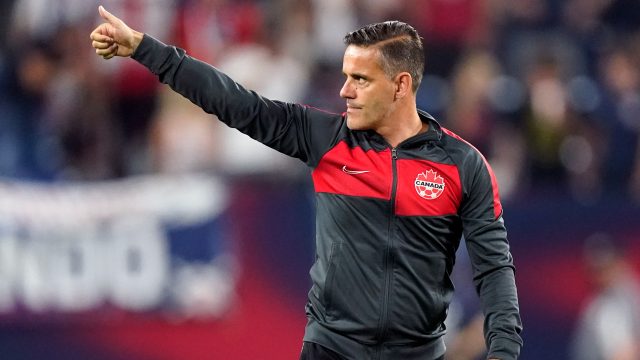
With the Canadian women’s soccer team facing an ongoing scandal regarding the use of drones at the Paris Olympics, longtime former captain Christine Sinclair gave her thoughts on Friday.
“It’s unfortunate that the players of our National Team have had to play through condemnable actions by some of their staff as they attempt to defend our gold medal. Actions players have no control over,” Sinclair wrote in a statement posted to Instagram. “I want to be clear that having been a national team player for 23 years, we were never shown or discussed drone footage in team or individual meetings I’ve been present for.”
The scandal broke on Tuesday when the Canadian Olympic Committee announced that a “non-accredited” member of Canada Soccer’s support team had been detained by French authorities in Saint-Étienne for allegedly using a drone to record New Zealand’s women’s soccer team during practice.
On Wednesday, assistant coach Jasmine Mander and Canada Soccer analyst Joseph Lombardi were sent home from the Olympics after two accusations of spying were made by the New Zealand team.
Head coach Bev Priestman excused herself from coaching Canada’s opening match against New Zealand and was later suspended for the remainder of the Olympics as Canada Soccer continues its external review.
TSN’s Rick Westhead reported on Thursday evening that both the Canadian men’s and women’s national teams have been engaged in spying for years to film their opponents’ closed-door practices, including instances during Canada’s run to the women’s gold at the Tokyo Olympics. Some alleged instances predate Priestman’s tenure with the national team.
Former men’s national team coach John Herdman denied any knowledge of drone usage during his tenure and stated he will cooperate in the ongoing investigation.
“As players, we train endlessly our whole lives for those moments. Together, we take pride in letting our play speak for itself,” Sinclair’s statement read. “We battle within the touchlines with integrity, and try to meet each other with grace — win, lose or draw.”
Sinclair retired from international play in December 2023, nearly 22 years after playing her first major tournament with the national team. In 331 appearances with the national team, she’s scored 190 goals, making her the most prolific goal-scorer in international soccer. The 41-year-old Burnaby, B.C. native is a three-time Olympic medallist, winning bronze in 2012 and 2016 and gold in 2021.